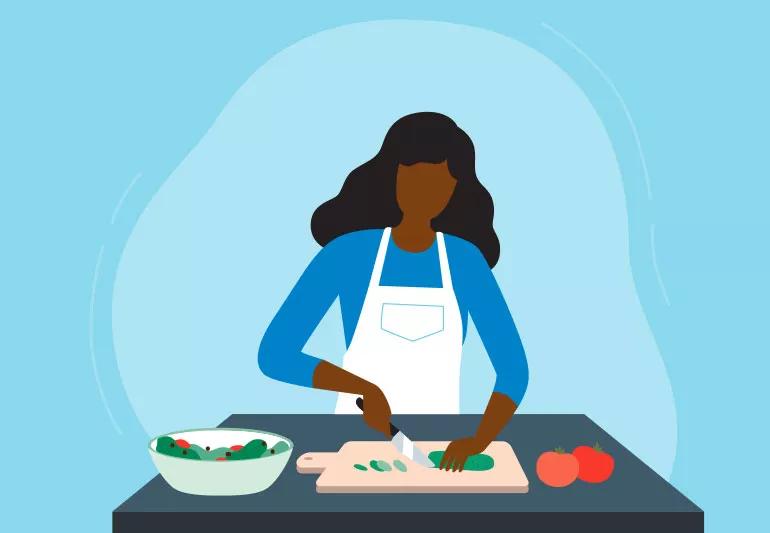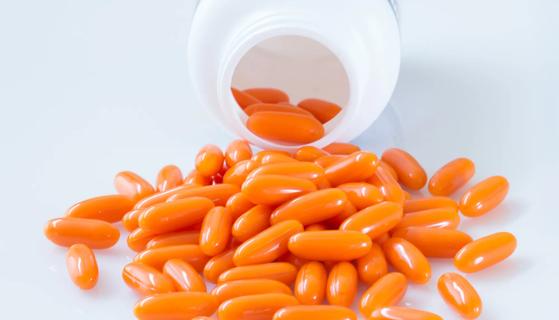An expert reveals the diets that work and the ones you should avoid

The results of your routine bloodwork came in, and you’ve got high cholesterol. Ugh. Now what?
Advertisement
Cleveland Clinic is a non-profit academic medical center. Advertising on our site helps support our mission. We do not endorse non-Cleveland Clinic products or services. Policy
The first line of treatment is usually changing how you eat. But knowing which diet for high cholesterol will improve the condition is challenging — there are so many to choose from, and they all claim to make you healthier.
Registered dietitian Julia Zumpano, RD, LD, says: Follow a heart-healthy diet.
“High cholesterol clogs your arteries,” she says. “Eat in a way that keeps the arteries open and clear because restricted blood flow leads to heart attacks.”
Your diet has a big impact on cholesterol levels. So choose a pattern of eating that’ll get your cholesterol into a healthy range. Zumpano shares her thoughts on a few of the commonly recommended diet plans for high cholesterol.
The therapeutic lifestyle changes (TLC) diet was developed in 1985 to help people lower cholesterol. It’s a low-fat diet where:
However, this diet is based on an outdated way of thinking.
“We used to believe that fat was the dietary enemy. But thinking has evolved,” says Zumpano. “The TLC diet is too low in fat and has too many carbohydrates, which could lead to elevated blood sugars and triglycerides. Only those who are very active can burn off all those carbohydrate calories.”
Advertisement
The Mediterranean diet has fewer carbohydrates and protein than the TLC diet. But it includes more healthy fats from foods like olive oil and nuts. If you’re following the Mediterranean diet, expect to fill your plate with lots of whole grains, beans and fruits and veggies. You can also enjoy a limited amount of nuts, fish, lean poultry and dairy.
“The amount of research that supports the Mediterranean diet for cardiovascular health is phenomenal,” says Zumpano. “It’s been proven to be very effective for managing heart disease.”
It addresses the three main heart-disease risk factors by:
The ketogenic (keto) diet aims to put your body in a state of ketosis, when your body burns fat for energy rather than carbohydrates. The diet is high in fat, moderate in protein and very low in carbohydrates.
“Ketosis has a tremendous amount of benefits,” says Zumpano. “But I don’t like that the keto diet is extremely high in saturated fat with foods like bacon, cheese and red meat.”
Instead, Zumpano recommends the protein-sparing modified fast (PSMF). It’s a diet that also creates ketosis but with less fat. Most of the calories come from lean protein with moderate amounts of healthy fats. Vegetables are the only source of carbohydrates.
When it comes to diet, one plan doesn’t work for everyone. What’s easy for you can be challenging for someone else to stick to. The best diet is one that fits individual food preferences and lifestyle, says Zumpano.
She recommends working with a registered dietitian to create a cholesterol-lowering diet plan tailored to your likes and dislikes.
“For example, you might love cheese but don’t particularly like red meat,” she says. “Both have saturated fat. A dietitian can help you include the foods you enjoy on a regular basis and limit or avoid those that you are willing to remove. It’s important to create a plan that works for you.”
Multiple diets can help you lower high cholesterol. But a personalized plan is the best option since you’re more likely to sustain it. That’s important because managing high cholesterol — and keeping your ticker going strong — is a long-term commitment.
The main culprits that cause high cholesterol are saturated fats and partially hydrogenated oil known as trans fat. These are commonly found in highly processed foods like:
Keep in mind that trans fat can sneak into peanut butter, coffee creamers, frozen pizza and microwave popcorn. So read those labels. Even items that claim zero grams of trans fat may include partially hydrogenated oils. The fat in these items increases your bad cholesterol, lowers your good cholesterol and causes inflammation, the underlying cause of heart disease, explains Zumpano. Inflammation can contribute to plaque buildup in your arteries and cause blood clots to form around them, blocking blood flow.
Advertisement
Additionally, eating too many unhealthy foods can produce excess triglycerides, another form of fat found in your blood. High triglyceride levels result from having too many calories most often from too much fat or sugar in the diet. Triglycerides also stick to the walls of your arteries, worsening plaque buildup.
Only animal products contain cholesterol. These include:
Plant-based foods don’t have cholesterol. “You won’t find it in peanut butter or avocados,” says Zumpano. “However, dietary cholesterol doesn’t necessarily cause elevated blood cholesterol. The real problem lies with eating the wrong kind of fats.”
Advertisement
Learn more about our editorial process.
Advertisement

Medications known as statins can lower cholesterol levels to minimize the risk of blocked arteries

Fatty fish, flaxseed, extra virgin olive oil and nuts may help raise your HDL number

Grapefruit contains natural chemical compounds that can interfere with certain medications when it’s consumed in large amounts

Up to 30% of people who take the cholesterol-lowering medication feel aches and soreness

There’s not enough evidence to show that this supplement has any effect on muscle aches from cholesterol-lowering meds

There’s no limit on the amount you should have each day, but experts are focused on saturated fat

Statin use has been associated with weight gain but the reasons aren’t clear — and the benefits of statins far outweigh the risks

Some statins have been shown to slightly increase your risk of diabetes — but that shouldn’t keep you from taking the medication you need

Start having sex about 72 hours before ovulation, then at least every other day during your fertile window

Attachment theory suggests that your earliest relationships shape connections throughout your life

It isn’t a recognized mental health disorder, but research shows that problematic social media use can negatively affect your mental health, self-esteem and sleep